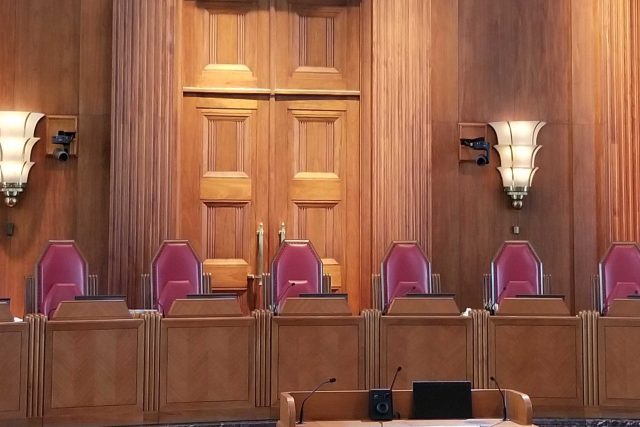The Supreme Court of Canada ruled unanimously Friday that the country’s Safe Third Country Agreement (SCTA) with the United States is constitutional under section 7 of the Canadian Charter of Rights and Freedoms, rejecting a challenge brought by a group of human rights organizations and refugees who had tried to enter Canada from the US. Section 7 of the Charter guarantees “the right to life, liberty and security of the person and the right not to be deprived thereof except in accordance with the principles of fundamental justice.”The court found that while “the risks of detention upon return to the United States… fall within the scope of liberty and security of the person,” there is no evidence that US immigration detention and review practices are “fundamentally unfair, and thus the risk of detention that returnees face is not overbroad.”Justice Nicholas Kasirer wrote in the court’s judgment that “the appellants did not discharge their burden to show that safeguards are absent in the American asylum system. While the record shows that returnees face a risk of detention in the United States, it also discloses mechanisms that create opportunities for release and provide for review by administrative decision makers and courts.” The court also noted that there are provisions within Canada’s Immigration and Refugee Protection Act that would prevent a refugee from being returned to the US if they faced the risk of deportation back to the country where they suffered persecution.While the court also rejected the group’s claim that the US’s designation as a “safe third country” was outside the government’s authority, it sent the group’s third claim, that the agreement violates Section 15 of the Charter due to gender-based discrimination, back to the lower court.The plaintiffs in the case include a family from El Salvador, an Ethiopian woman and a family from Syria who left the US amid the Trump administration’s 2017 ban on travel from Syria. Together, they argued that the Canadian government violated section 7 of the charter by turning Canada-bound refugees back to the US, where they can subject to deportation, poor detention conditions and the possibility of discrimination. The Ethiopian refugee, Nedira Jemal Mustefa, attempted to enter Canada fearing the possibility of her asylum claim being denied in the US, but she was turned back at the border and subjected to a week in solitary confinement at a US immigration detention facility.The court’s decision comes after the Federal Court of Appeal overturned a lower court ruling which found that the STCA violated section 7 of the charter because the risk of detention for returned refugees in the US was “grossly disproportionate.”The SCTA has been in force since 2004. It mandates that refugees remain in the first “safe country” that they arrive in, whether Canada or the US, subject to certain exceptions. In March, Canadian Prime Minister Justin Trudeau and US President Joe Biden agreed to amend the SCTA by closing a loophole that allowed claimants to have their claims heard in Canada if they crossed the US-Canada border at an unauthorized point.



The Most Read
Сryptocurrencies
Bitcoin and Altcoins Trading Near Make-or-Break Levels
Financial crimes
Thieves targeted crypto execs and threatened their families in wide-ranging scheme
Financial crimes
Visa Warning: Hackers Ramp Up Card Stealing Attacks At Gas Stations
News
Capitalism is having an identity crisis – but it is still the best system
Uncategorized
The 73-year-old Vietnamese refugee is responsible for bringing Sriracha to American consumers
Uncategorized
Electric Truckmaker Rivian, Backed By Amazon, Ford, Raises Whopping $1.3 Billion